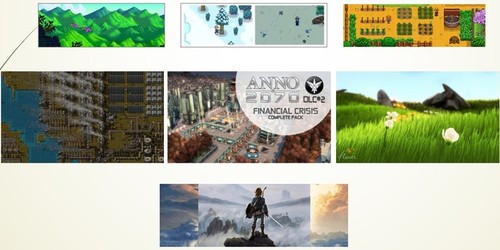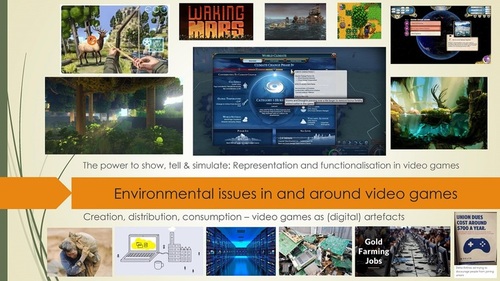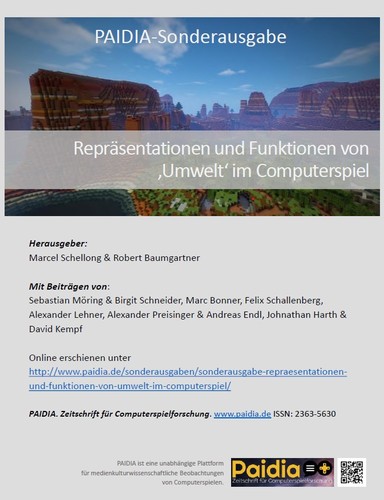Greener Game Studies
Advancing the Discourse about Nature and/in Video Games
12.12.2019
Advisor: Dr Marcel Schellong (LMU München)

Various representations of environments and environmental issues in video games. Collage by author.
During the last 15 years, video games have become one of the most popular forms of media—and (Video) Game Studies have become an established discipline. Although Game Studies are generally very open to new theoretical approaches (and scholars are currently working very productively with concepts from Postcolonial or Gender Studies), I have noted mostly a vacuum when it comes to the discussion of environmental topics in and around video games. Only a few scholars are exploring the role and functionalization of the nonhuman world in this popular mass medium—and even fewer are using the interdisciplinary tools I encountered in the ESP: Ecocritical approaches of media analysis, the concepts of ecological justice or approaches from the natural sciences (which would be extremely important when analyzing e.g. the depiction of climate change in video games) are currently underused.

Perspectives on the topic: environmental issues in video games (upper side) and around video games (lower side). Collage by author.
I wanted to change this and do my part in addressing this blind spot. I contacted Dr. Marcel Schellong, who is a chief editor of PAIDIA, one of the most established academic journals for game studies in German-speaking countries. He agreed to assist and mentor me in planning and editing a special issue that should both create awareness and encourage work on the relationship between video games and environmental issues.

Cover of the paper version of the special issue. Available at the RCC library. Image from the author.
To be honest, editing an academic journal and writing my own article was pretty challenging at times, but I think we achieved very good results. The seven essays of this special issue employ various ecocritical approaches and perspectives on individual games, genres or the medium itself and connect them to topics like climate change, rural nostalgia as well as concepts of wilderness, individuation, and "dark green" spirituality. Two articles are especially promising: combined, the articles of Schneider+ Möring and Endl + Preisinger can provide an innovative handbook for the analysis of representations of climate change in video games. As such, they can be of great assistance to teachers who want to help their students to see the connections between virtual and physical environments. The special issue has been well received; since its launch, the online version was accessed by more than 6,000 users—not only scholars but also interested gamers that want to learn more about the relationship between video games and environmental issues.
You can find all the articles of the special issue here.

